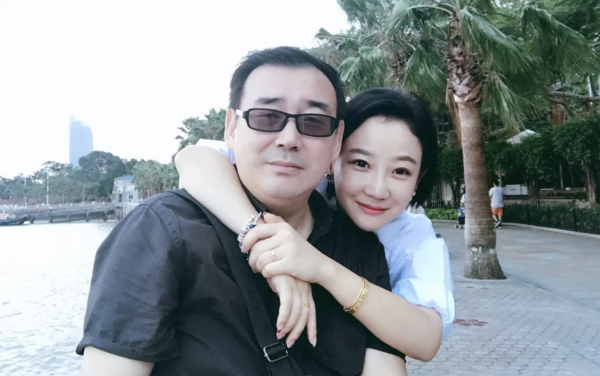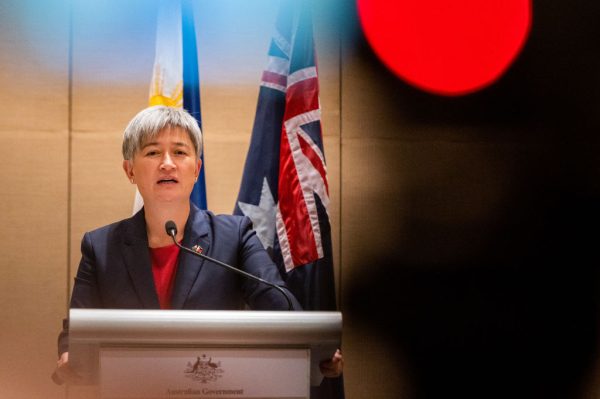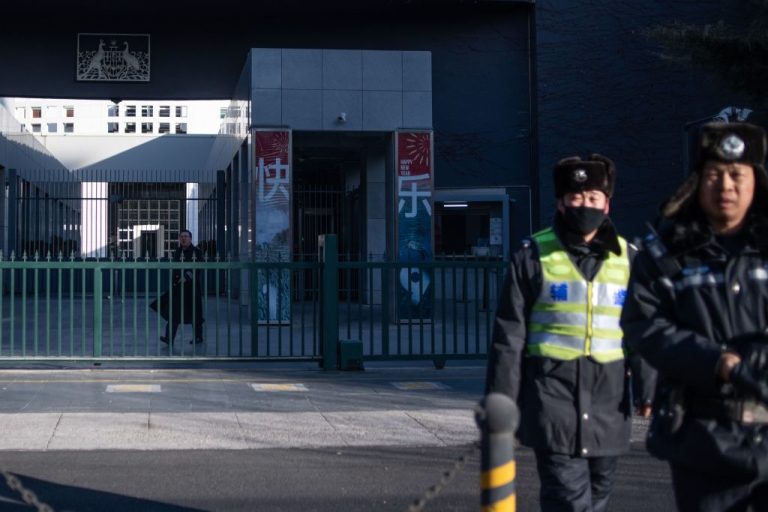In a move that has sparked international outcry and renewed concern over China’s treatment of foreign nationals and dissidents, a Chinese court handed down a “suspended death sentence” to Yang Hengjun on Feb. 5.
Detained since January 2019, Yang is a Chinese-born Australian citizen known for his pro-democracy blogging and commentary. Yang’s suspended death sentence subjects him to a two-year reprieve during which the execution will be delayed. Following this period, the sentence is typically commuted to life imprisonment, though in some rare cases, it may be reduced to a fixed jail term.
During these two years, however, the convicted individual remains incarcerated and has to face uncertain conditions, including limited access to family, legal representation, and medical care.

Beijing’s dissident crackdown
A former Chinese diplomat turned political commentator and writer, Yang was first arrested upon his arrival in the southern city of Guangzhou from New York on Jan. 19, 2019. At the time, he was traveling with his wife and stepdaughter.
After a prolonged period of detention, during which the Australian government repeatedly voiced its concerns and advocated for his release, Yang was tried behind closed doors in May 2021. The murky trial led to a conviction on charges of espionage — a verdict that carries the maximum penalty of death in China.
Success
You are now signed up for our newsletter
Success
Check your email to complete sign up
For decades, dozens of human rights activists, lawyers, and religious believers have been routinely arrested or subject to strict surveillance by Chinese authorities for turning a critical eye on the government, advocating for democratic reforms, or simply for practicing their faith. Many of these individuals remain behind bars under hazy subversion charges.
RELATED: Disappeared: The Faces of Human Rights Activists Silenced by Communist China
Australian Foreign Minister Penny Wong expressed her government’s dismay at the Chinese court’s decision, stating, “The Australian Government is appalled. This is harrowing news for Dr. Yang, his family, and all who have supported him.”

Yang, who became a naturalized Australian citizen in 2002, has refuted allegations of espionage — asserting that his detention is politically motivated and linked to his outspoken support for democracy, human rights, and calls for government transparency in the Communist-ruled country.
The case has elicited a strong reaction from both the Australian public and the international community. Yang’s family, through a spokesperson, conveyed their shock and devastation while emphasizing Yang’s commitment to “truth, democracy, and respectful exchange of rational ideas.”
Feng Chongyi, an associate professor at Sydney’s University of Technology and a friend of Yang’s, condemned the charges as “an outrageous political persecution,” designed to suppress the basic rights of activists in China.
In a poignant letter addressed to his children in August last year, Yang shared the grim reality of his detention, describing how he hasn’t been allowed to go outside in over four years. His health concerns — including a kidney cyst diagnosis and severe malnourishment — have prompted calls for his release on medical grounds.
Meanwhile, the Australian government has vowed to respond decisively, with Foreign Minister Wong affirming that Australia “will be communicating our response in the strongest terms” and will persist in advocating for Yang’s interests, wellbeing, and access to medical care.
Simmering tensions
Despite these tensions, the Chinese Foreign Ministry insists that Yang’s procedural rights were “safeguarded during the trial,” and added that Australian representatives were present at the time of sentencing.
Yang’s sentencing comes at a time of strained relations between Australia and China — particularly regarding the treatment of foreign nationals and the broader implications for freedoms of speech and belief in the country.
The recent release of Australian journalist Cheng Lei, after more than three years of detention in China, offered a glimmer of hope for those advocating for detained Australians abroad. But Yang’s sentencing now serves as a stark reminder of the challenges and complexities of navigating diplomatic relations with China — especially when it comes to the human rights and legal process of foreign citizens on Chinese soil.
Tensions between the two countries have been bubbling in recent years — especially over China’s increasing influence in the Pacific region, which Australia views as within its sphere of influence.
This discord was exacerbated when the Solomon Islands, an island nation located approximately 2,000 kilometers (about 1,242 miles) northeast of Australia, signed a security pact with China in July 2023. The development raised concerns that Beijing was looking to establish a military presence and bolster its influence in the strategically-significant archipelago.













